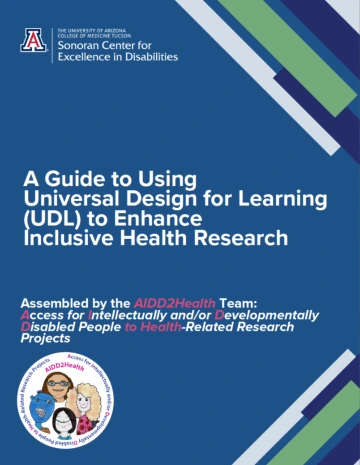Image

Research often excludes people with disabilities. Yet, people with disabilities may experience poor health outcomes, often the result of unequal practices, programs, and policies that discriminate.
Health equity and justice means everyone should have opportunities to be as healthy as they can be, no matter who they are or what their circumstances. To achieve this, we need to:
- Challenge our ideas about health and who is at the center in health research
- Bring new perspectives about health into healthcare research
- Make research and care more inclusive to serve a more diverse population, including people with disabilities
The research process should be clear and accessible to engage people from diverse communities so researchers can better understand their health needs and ultimately improve health outcomes for all people.
This guidebook is designed for researchers seeking knowledge, skills, and resources for inclusive research practices. While it specifically focuses on working with people with intellectual and/or developmental disabilities (IDD), the information is applicable to all people through the use of Universal Design for Learning (UDL) as a framework.
